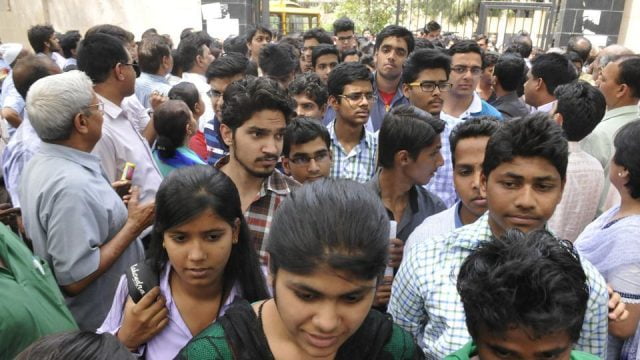Full disclaimer- I took the IIT-JEE exam after roughly a year of prep and a lot of aspirations. Rather than actually getting into a top college, I did not even clear the cut-off for the JEE (Advanced) examination. You might assume that I have no clue about this issue since I did not get in. On the contrary, it’s especially this fact that qualifies me to comment.
First of all, for people not familiar with how the IIT admissions work: the IIT-JEE exam is made up of two parts. The first part is called JEE (Mains), the score of this exam is used to
- Get admission into Non-IIT colleges that take this score as an admission criterion ( Delhi Technological University, National Institutes of Technology, Punjab Engineering College etc)
- To determine who can give the next part of the exam ie JEE (Advanced)
The JEE (Advanced) exam scores are actually what are considered when taking admission into IITs.

Why the government plans to reduce the difficulty
Now, recently the Modi government asked the IIT council to consider reducing the difficulty of the JEE (Advanced) exam. This move was prompted by the merit list of the 2018 JEE (Advanced) exam as this time around, the merit list was shorter than usual.
The number of qualified candidates was so less as compared to previous years that the IIT council reduced the cut-off marks to make sure that seats were not left empty.
According to the Economic Times, R Subrahmanyam, secretary (higher education), in the Ministry of Human Resource Development said-
“We would like to ask IIT Council and IITs to examine the modalities and the test design of JEE-Advanced exam keeping in view the poor outcome this year. We feel this (test design) was far beyond the capability of students and this issue needs to be addressed”
Also Read: How To Get Into A Good Engineering College In India
Such concerns have been raised again and again over the years. In the UPA-II government, class 12 marks were brought into the weight criteria of the JEE (Main) score to negate the effect of coaching classes which focus on rote culture.
Why this step does more harm than good
But unfortunately, all of these steps are as useful as an elephant’s tusks. They do not focus on the deep-rooted problems that plague our education system, rather they address only the symptoms.
When the government says that the JEE (Advanced) is too difficult for the students, it is conceding to the fact that it has been unable to raise the quality of education imparted to students and is lowering a barrier that was already too low.
The institutions and profession that these exams lead to require a high level of technical proficiency and a certain intensity that is instilled during the preparation of such exams.
These exams provide a sorting mechanism to weed out those who would not be fit at all in pursuing a course and profession that requires such focus and intensity. I agree that the exam in itself is not perfect, and the method for its preparation is definitely not, but it’s still better than a watered down version.
Predicting the future
All the watered down version will be successful in doing is filling out the seats in the IITs. It won’t provide us with quality graduates, on the contrary, it will let people get off easy in the exam, thus creating a trickle-down effect which will make people work less hard, in the hope that the cutoff will be low enough.
This and the measures which seek to reduce the NCERT syllabus create short-term relief for students who are victims of a failed education system. In the long run, it will only deepen the cracks in the system, making it more unfair, and less efficient.
Sources: Economic Times, Times Of India, India Today
Image Source: Google Images
You would also like to read:
http://edtimes.in/2017/05/engineering-studying-india-reality/






























